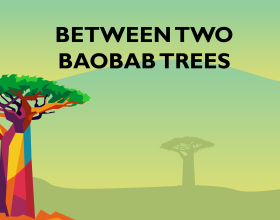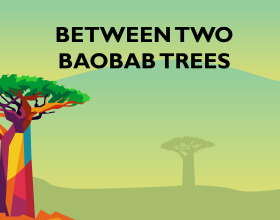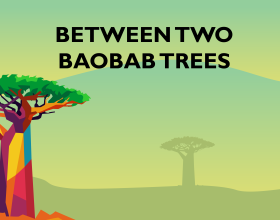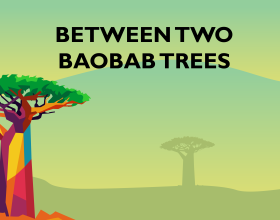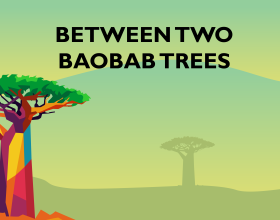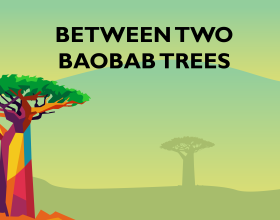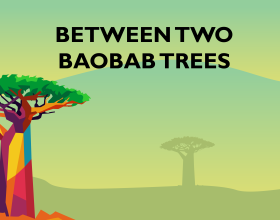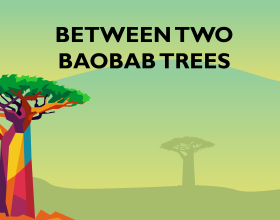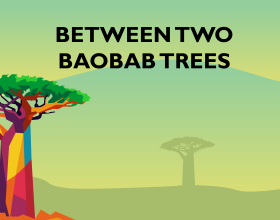Can integrating climate into health programming improve health outcomes? This is the question that we want to explore. Climate change is a pressing threat to humanity. This series explores the intersection between climate and health and highlights the interconnected nature of the two through stories, evidence, and lessons learned.
Listen to what the team of experts have to say about this series.
Transcript
Tiffani Scales: Welcome to Between Two Baobab Trees. Can integrating climate into health programming improve health outcomes? This is the question that we want to explore. This podcast will look at the intersection between climate and health and highlight the interconnected nature of the two through stories, evidence, and lessons learned. My name is Tiffani Scales and I'm a Program Officer on the USAID Africa Bureau's Office of Sustainable Development Health Team, and I'm joined today by my colleagues and co-hosts of this podcast series: Ashley Garley.
Ashley Garley: Hey.
Tiffani Scales: Colin Quinn.
Colin Quinn: Hi, Tiffani.
Tiffani Scales: Zach Burt.
Zach Burt: Hello.
Tiffani Scales: And Elizabeth Pleuss.
Elizabeth Pleus: Hi everyone.
Tiffani Scales: Zach, can you tell our listeners a little bit more about this podcast series? Why this topic and why now?
Zach Burt: Sure, Tiffani. Yeah, addressing the threat of climate change is both a priority of the current Administration and a key topic of interest for USAID. Through the 2021 Global Health Leaders meeting, there's a clear need for more guidance on technical issues regarding climate and health. We also saw the impacts of climate change on health come up as a key topic at the COP26 meeting. The 26th Conference of the Parties, or more commonly referred to as COP, was the 2021 United Nations Climate Change Conference, held in Glasgow, Scotland in the United Kingdom from October 31st to the 13th of November. This is the conference where global leaders, policy makers, and climate experts gather to negotiate global climate agreements, discuss climate policy and learn from each other.
Ashley Garley: So the impacts of climate change are well known and USAID has a climate strategy, but a strategy is a high-level document and when it comes to translating that guidance into programming that addresses these issues, there needs to be more support. One way to provide the support is by sharing research data and stories that can help others understand these issues, what is currently being done to address them and what we need to do differently moving forward.
Colin Quinn: That's so true, Ashley. Thinking about what we need to do different is especially important in Africa. Climate change and extreme weather have really profound impacts on human health in Africa, more so in Africa than in other places. Many African countries already experience a number of health challenges, such as a high burden of infectious diseases. And these health challenges can be made worse or exacerbated by climate change. In addition, health systems in Africa aren't always equipped to deal with the increased risk and impacts caused by climate change making climate change impacts even worse. In this podcast series, we're going to hear about the impacts of climate change, how we can address those impacts through projects and programs. We've lined up speakers to discuss the impact of climate change on the topics of maternal and child health, early response and warning systems for infectious diseases, an example of a climate and health observatory to better understand climate impacts on public health in Mozambique, how climate impacts water and sanitation outcomes and the FuseNet tool in its origin and purpose. Each episode will be accompanied by supplemental content to guide you in self-reflection and interactive activities.
Elizabeth Pleus: We hope that by listening to the podcast episodes, reflecting on the information presented and exploring the additional resources, you might get ideas about how climate considerations can be incorporated into the design of your health programs. We also hope you share this podcast with other colleagues who might be interested and use it to spark conversations and discussion about this critical topic.
Tiffani Scales: So before we dive into the impacts of climate change on specific health sectors, we're going to first start with a discussion that explores the interconnectedness of the two more generally. It was so much fun to host that first episode. I really learned so much and I cannot wait for you all to hear it.
Colin Quinn: Tiffani, before we go, how'd you come up with the Between Two Baobab Trees name? Is it a reference to the Zach Galifianakis Between Two Ferns?
Tiffani Scales: Absolutely, Colin. Everyone loves that podcast, but more importantly, the baobob tree is native to Africa. So it made more sense to choose the baobab over the fern. The baobab is a succulent, so during the rainy season, it absorbs and it stores water in its vast trunk and that enables it to produce a nutrient dense fruit in the dry season. And when everything is dry and arid, it keeps everything alive. So this is how it became to be known as the tree of life. And this definition is really fitting as we explore the intersection between climate and health. We can reflect on the resilience of the baobab tree and what lessons we might be able to carry into our work.
Tiffani Scales: All right. Welcome to Between Two Baobab Trees. We'll see you in episode one.

